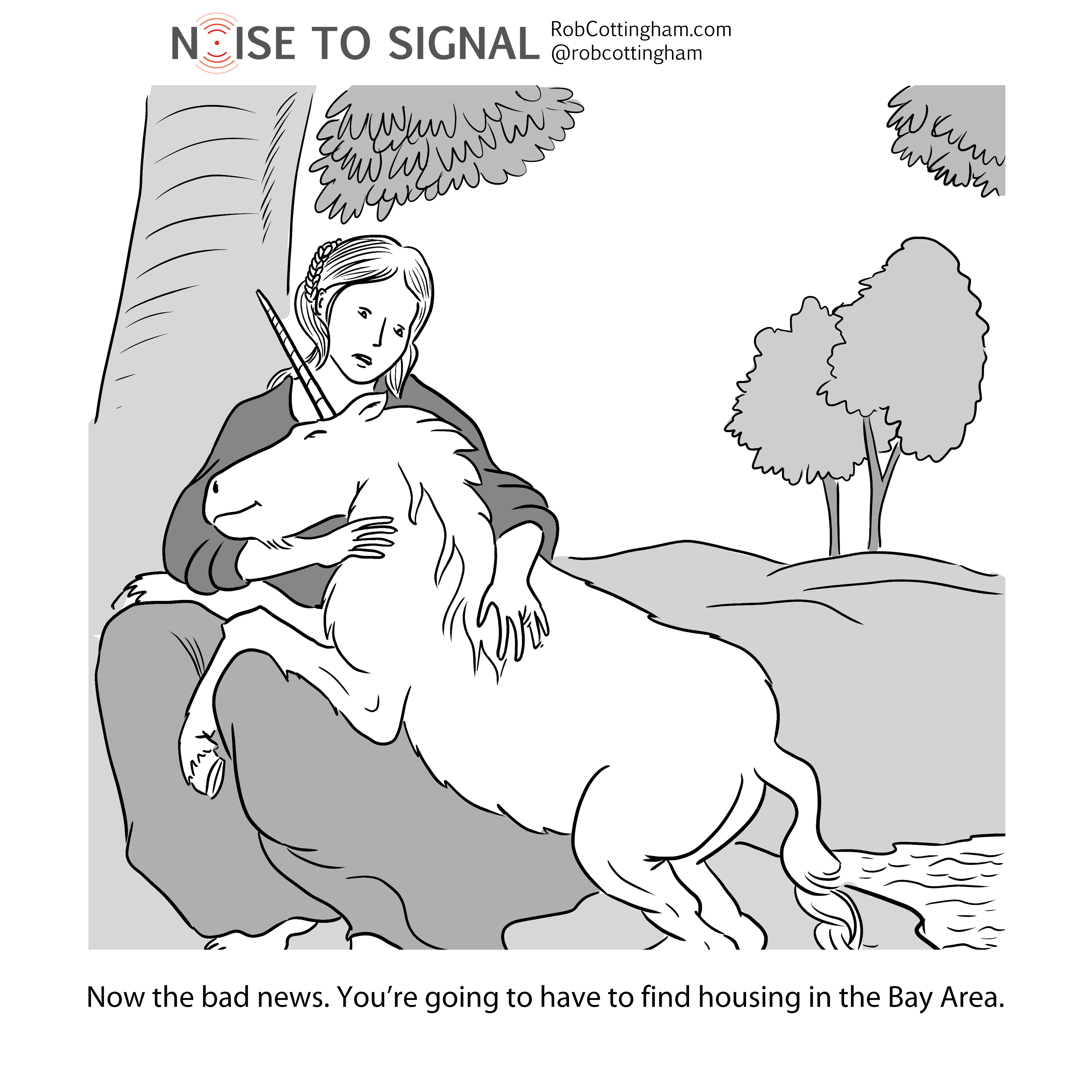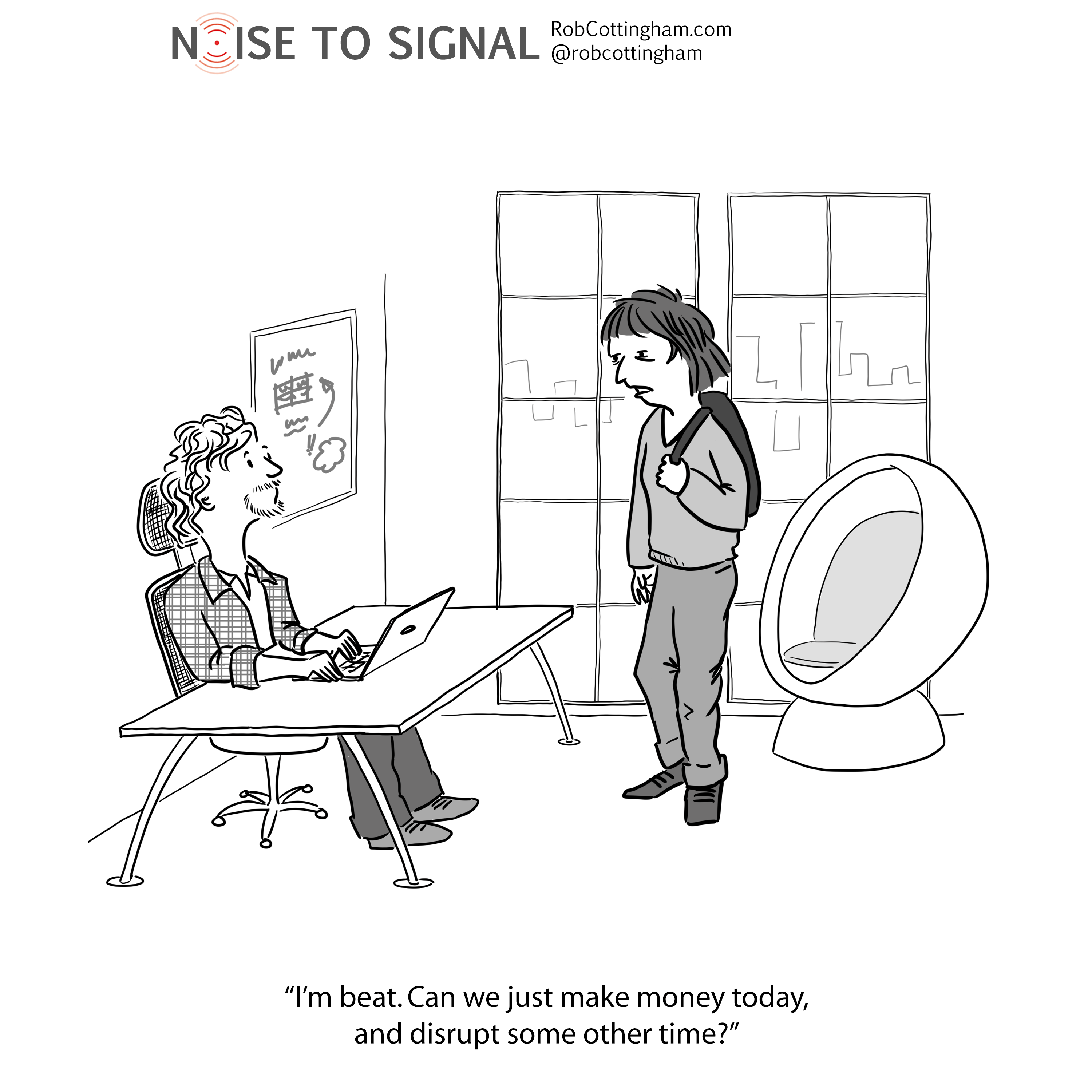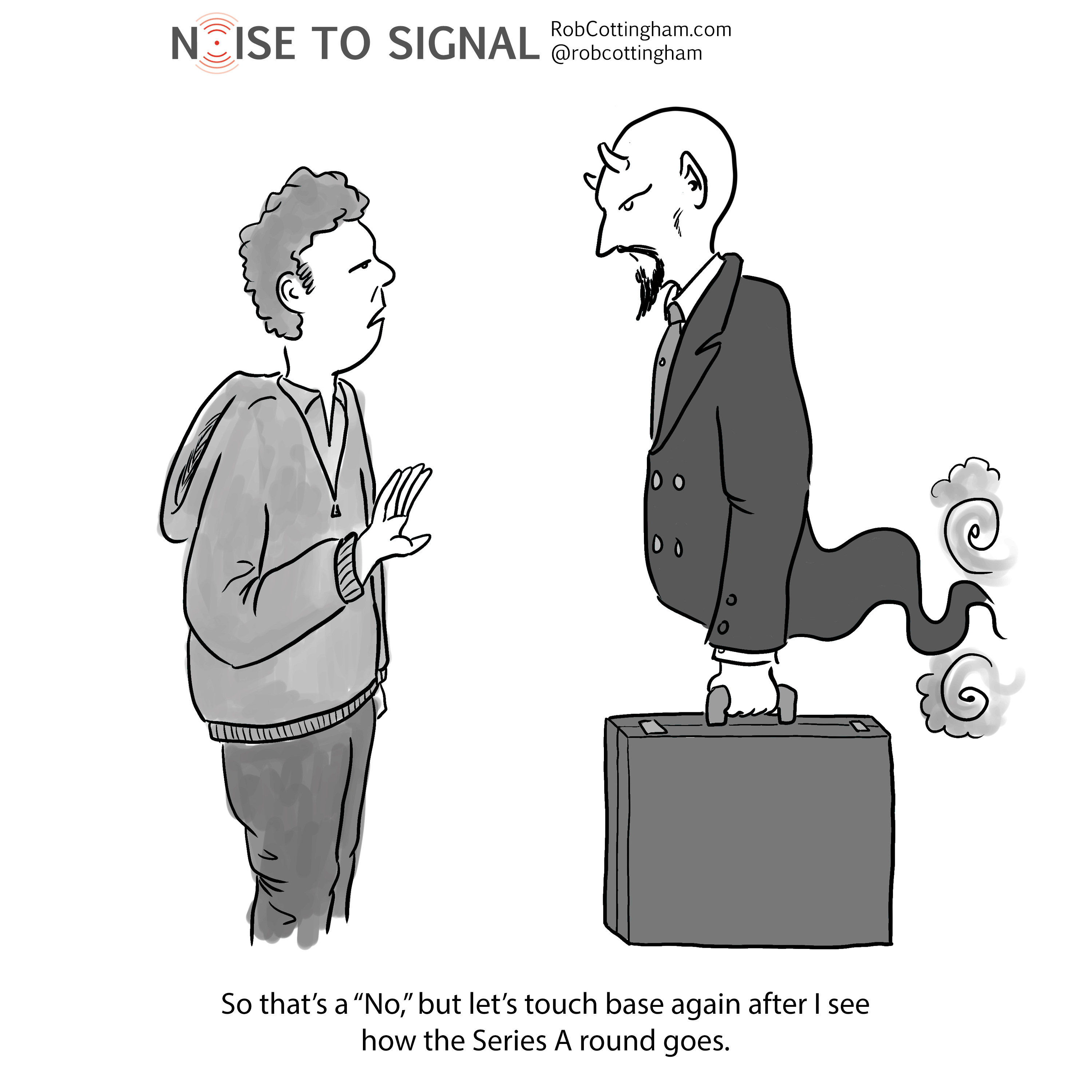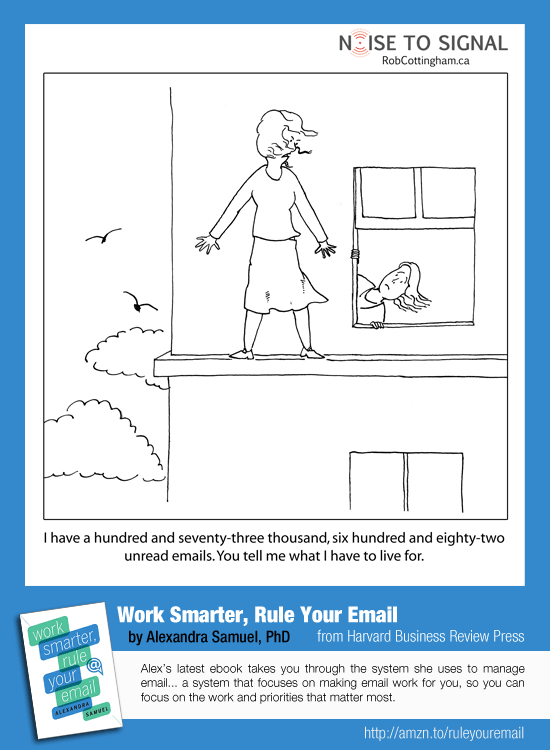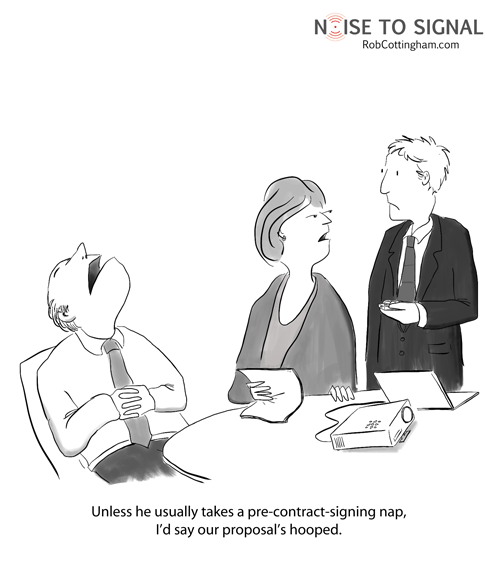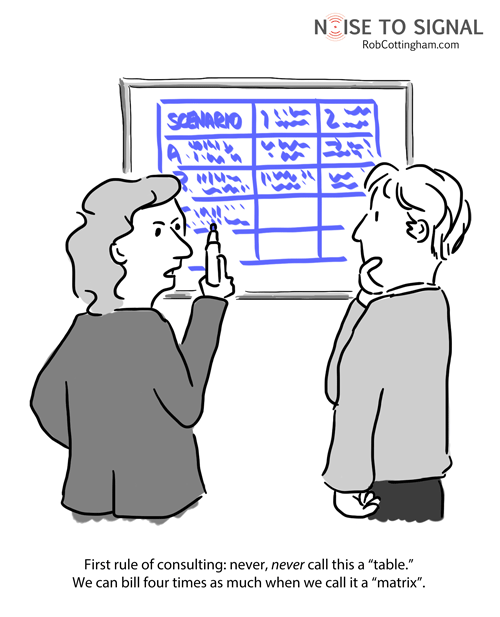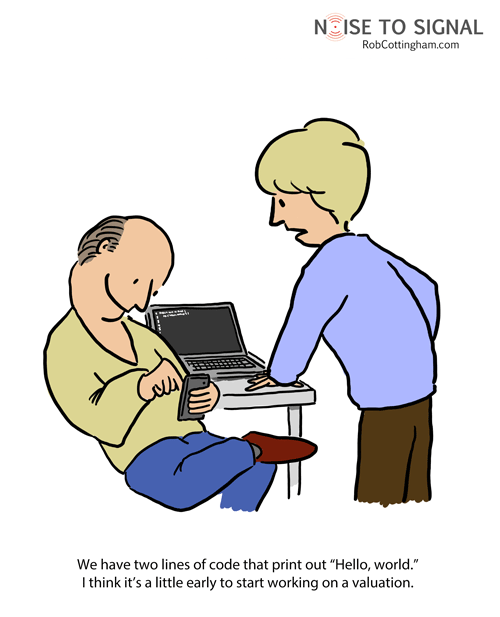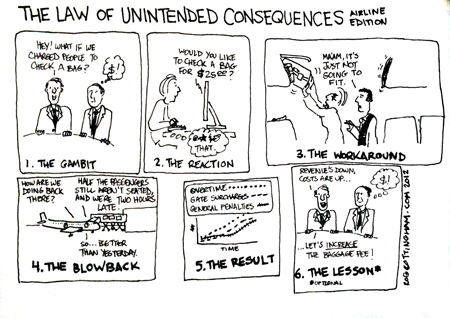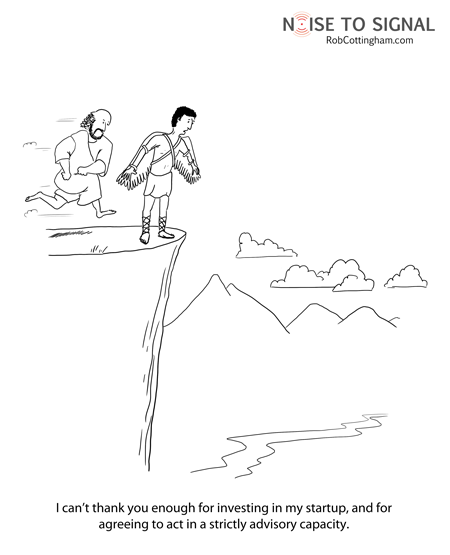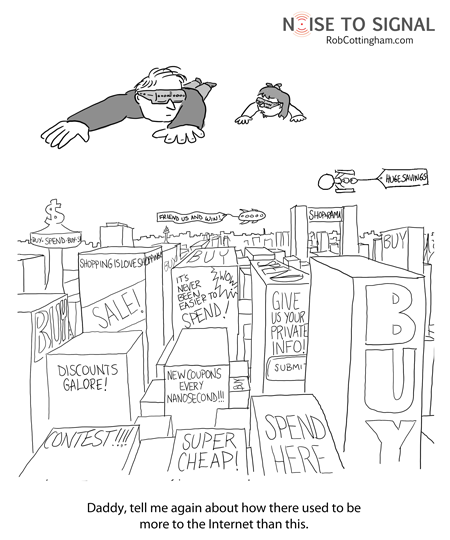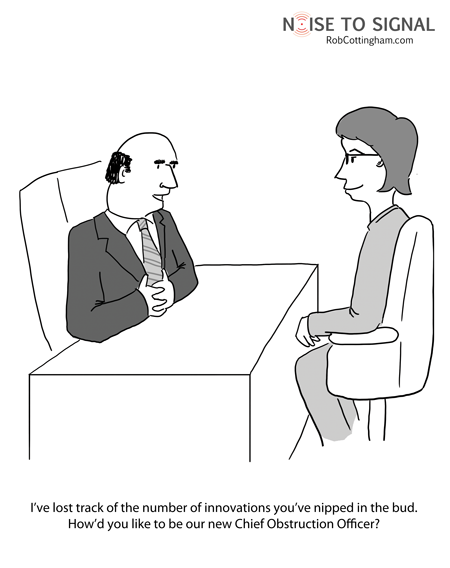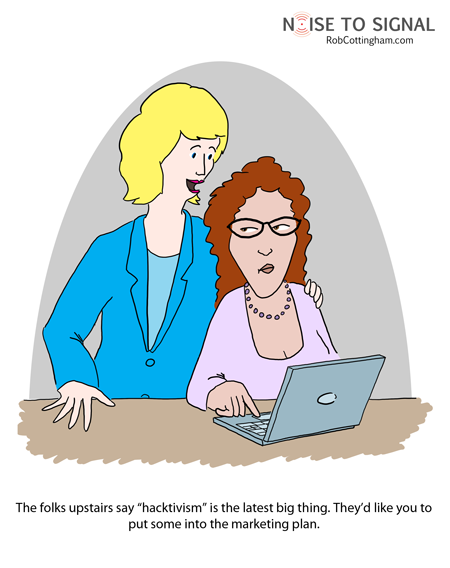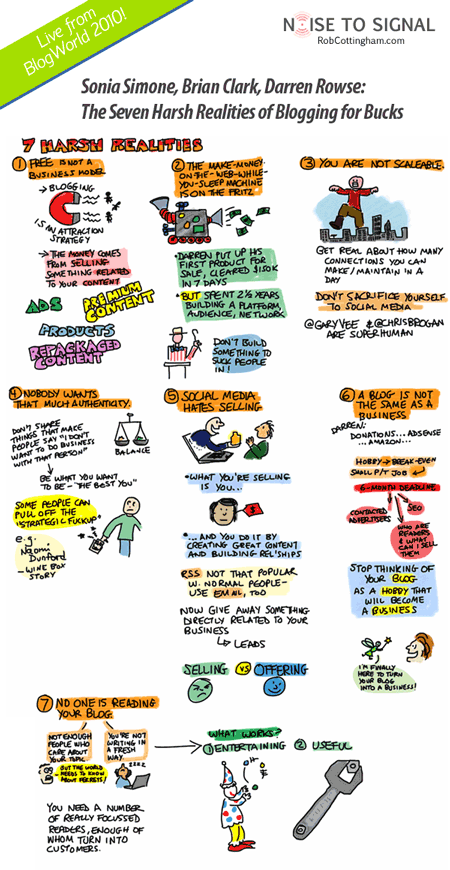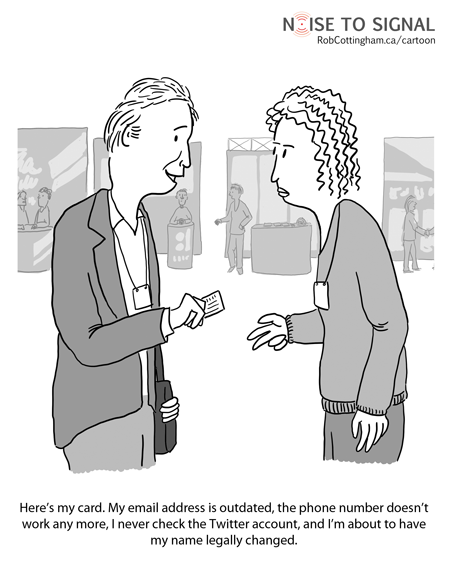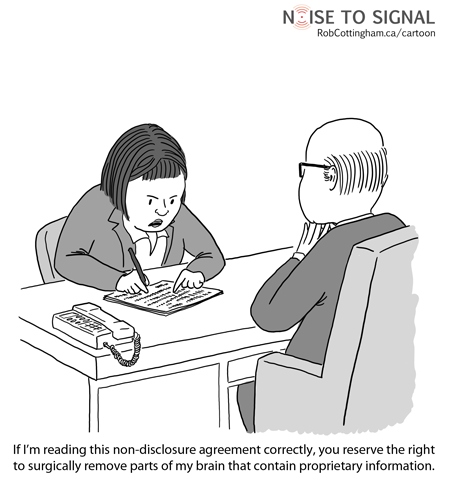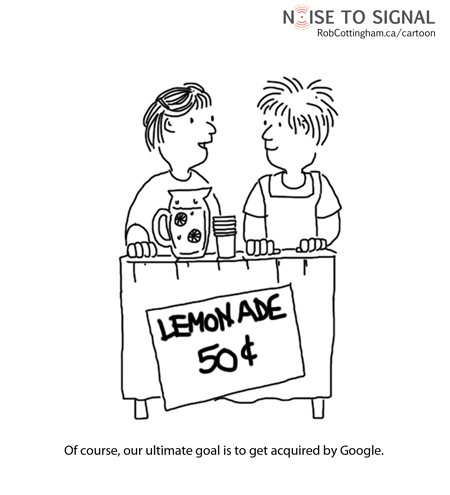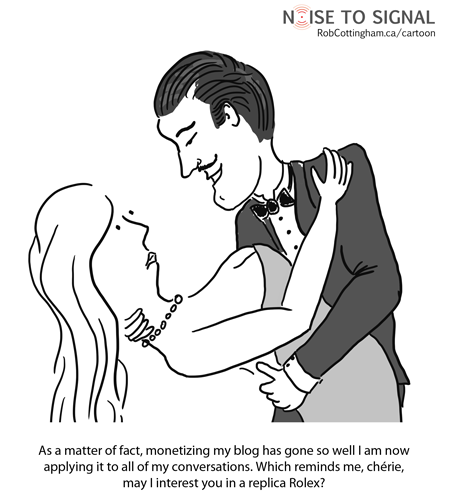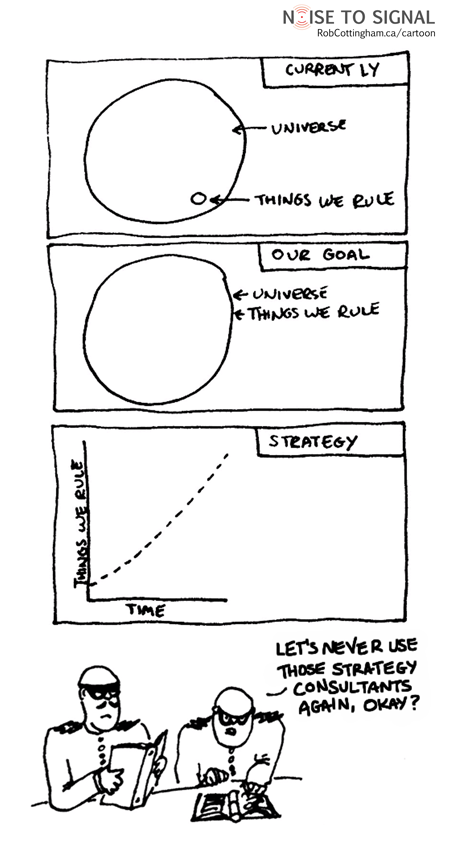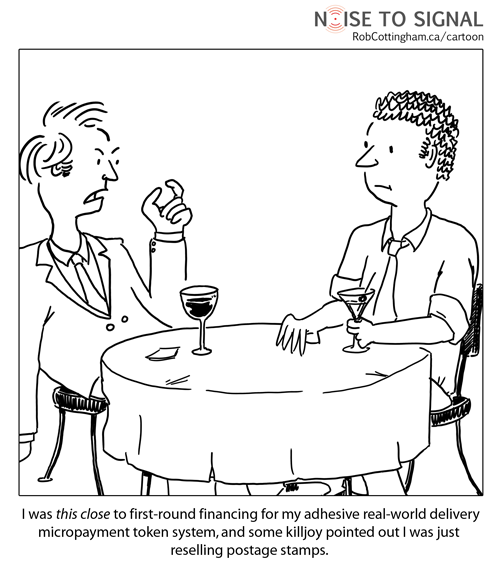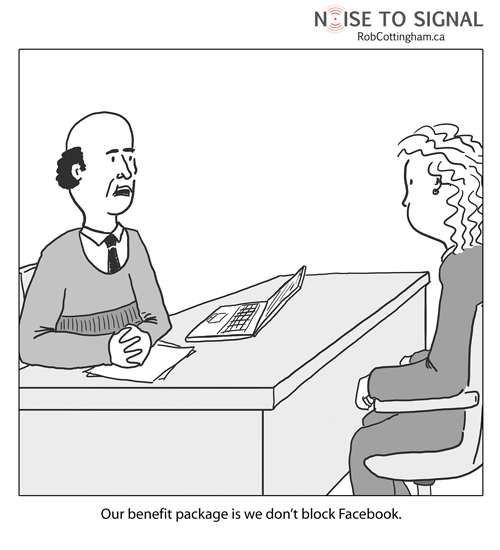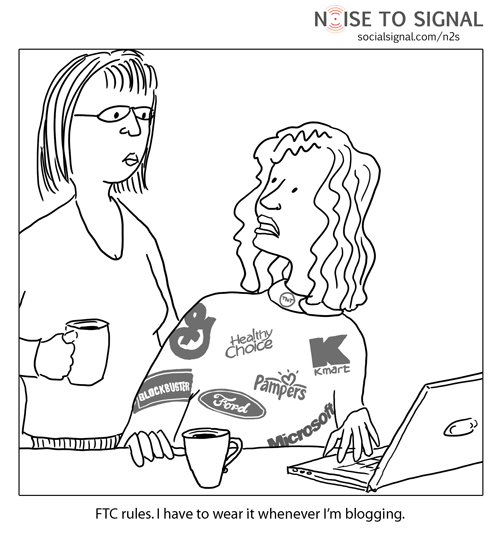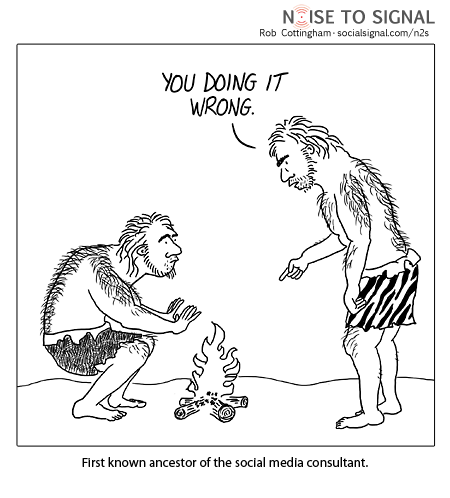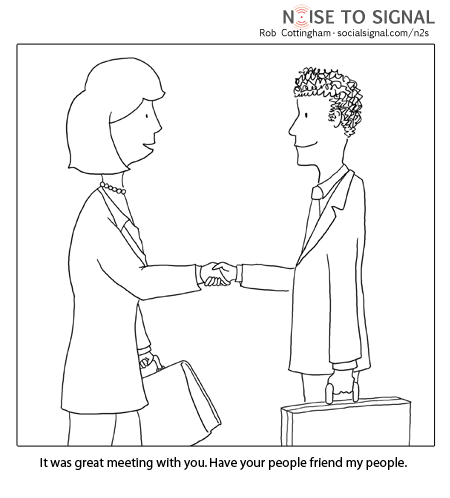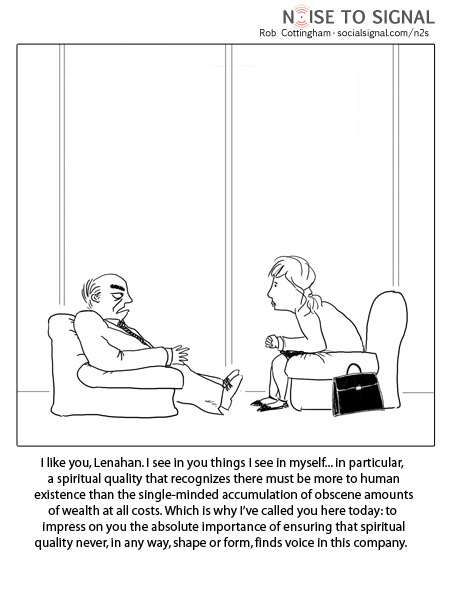I find people vary in how delighted they are to get requests to pick their brains. Some jump at them, possibly because they’re otherwise deprived of social contact, or because they’re highly altruistic, or because they really like free coffee.
But a lot of folks I know bristle at the question. My wife Alexandra calls it the “can-I-have-$500 call.” She points out it’s like asking someone to give up two potentially billable hours. (That’s once you factor in figure-out-a-date time, travel time and so on. And recognizing that different people bill at different rates, and some people drink coffee much more quickly than others.)
She understands that generating business often involves a courtship of coffee meetings and mutual exploration. But…
…there is a big difference between meeting with a consultant to assess whether you want to hire her, and asking her to simply give you a couple of hours to do the work you need. When you are talking to someone whose work includes analyzing problems, offering insight or making recommendations, “picking their brain” is the same as asking them to work for free.
Important cartoon milestone: This marks the first time I’ve created a Noise to Signal cartoon and post end-to-end on an iPad. The 12″ Pro was my birthday present, along with the Pencil and Logitech’s “Create” keyboard/cover. After a little hunting around, I’ve settled on Procreate for drawing and Autodesk Graphic for assembling the cartoon with its caption and logo. And writing this in WordPress with the keyboard was a breeze.
When I talk about the ease and precision of cartooning on the iPad Pro, it’s not so much to sell people on them. (Although, holy Hannah, it’s amazing.) It’s more to say that this is why you’re seeing a lot more cartoons this week from me. I’ll settle down into a more sedate schedule soon, I’m sure… but in the meantime, I’m having a ball.


